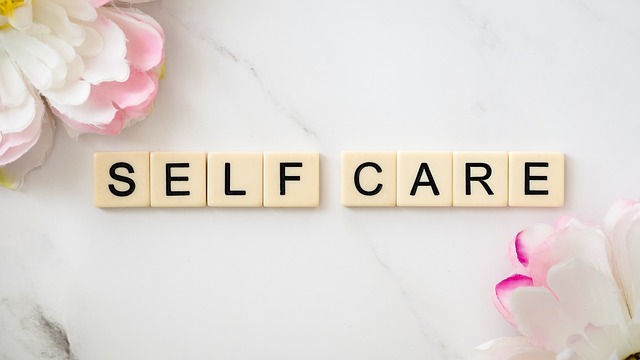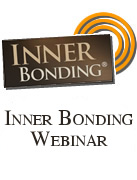Is There Such A Thing As Healthy Narcissism?
By Dr. Margaret PaulMarch 13, 2012
Discover that 'healthy narcissism' is an oxymoron!
 All of us have an ego wounded self who is narcissistic to one degree or another. For the purpose of this article, I am defining narcissism as abandoning responsibility for ourselves and expecting someone else to attend to us and define our self-worth, or expecting something external to fill us up and make us feel loved. Given this definition, ‘healthy narcissism’ is an oxymoron.
All of us have an ego wounded self who is narcissistic to one degree or another. For the purpose of this article, I am defining narcissism as abandoning responsibility for ourselves and expecting someone else to attend to us and define our self-worth, or expecting something external to fill us up and make us feel loved. Given this definition, ‘healthy narcissism’ is an oxymoron.
We are ‘healthy’ when we take responsibility for compassionately learning from all our feelings and taking loving action on our own behalf. When we behave in a healthy way toward ourselves and others, we are operating from our loving adult self. When we abandon ourselves by ignoring our feelings, judging ourselves, turning to various addictions to avoid our feelings, and making others responsible for our feelings, we are operating from our wounded self.
How the Wounded Self Defines Self-Care
Your wounded self might have a fairly skewed definition of self-care. Does your wounded self believe that you are taking loving care of yourself when you:
- Get angry at others when they don’t do what you want, telling yourself you deserve to feel angry when others let you down?
- Blame and guilt others for not meeting your needs, telling yourself you are standing up for yourself?
- Eat sugar and other junk to reward yourself?
- Drink or take drugs as a reward for a hard day?
- Avoid responsibilities by watching TV or indulging in other addictions, telling yourself that you’ve worked hard so you deserve to slack off?
- Shop and spend as a way to avoid taking responsibility for your feelings, telling yourself you deserve it?
- Other____________________________.
The wounded self likes to believe that indulging ourselves is self-care, but this is denial. Anytime you avoid responsibility for your feelings, you are abandoning yourself and expecting something or someone to fill your emptiness and make you feel loved. The expectation that someone or something external should make you feel better is narcissistic behavior..
How the Loving Adult Defines Self-Care
The loving adult defines self-care as:
- Staying present in your body and wanting responsibility for your feelings
- Being open to learning about how you might be causing your own anxiety, depression, guilt, shame, anger, emptiness and aloneness with your various ways of abandoning yourself.
- Being open to learning from your core painful feelings of loneliness, heartbreak, grief, and helplessness over others, rather than avoid these difficult feelings with various controlling and addictive behaviors.
- Taking action on your own behalf that makes you feel good inside in the long run, as opposed to the short-term good feelings of addictions.
- Staying connected with a personal source of spiritual guidance to help you have the wisdom, strength and courage to learn what you need to learn and take loving action on your own behalf.
Self-care never involves avoiding our feelings. Narcissism occurs when we avoid taking responsibility for our feelings, abandoning ourselves instead. Since there is no ‘healthy self-abandonment,’ there is no ‘healthy narcissism.’ I believe that using the term ‘narcissism’ along with the term ‘healthy’ creates confusion regarding what is truly self-care.
It is vitally important NOT to judge ourselves for our narcissism, since our wounded selves are all narcissistic to one degree or another. As we were growing up, we all learned many ways to abandon ourselves and avoid responsibility for our feelings. We cannot learn healthy self-care when we judge ourselves for our narcissism, since self-judgment itself leads to narcissism. Once we judge ourselves, then we try to have control over getting others to value us. This is still narcissism.
Join Dr. Margaret Paul for her 30-Day at-home Course: "Love Yourself: An Inner Bonding Experience to Heal Anxiety, Depression, Shame, Addictions and Relationships."
Image by Tiny Tribes from Pixabay
 Send this article to a friend
Send this article to a friend  Print this article
Print this article  Bookmarked 10 time(s)
Bookmarked 10 time(s)
| Related Articles |
|---|
| Signs of Narcissism |
| Discover Your Level of Narcissism |
| Caretaking: A Covert Form of Narcissism |
Comments
| Author | Comment | Date |
|---|---|---|
| Join the Inner Bonding Community to add your comment to articles and see the comments of others... | ||

Daily Inspiration
Today, ponder the sacredness of this incredible opportunity to be on this planet and evolve your soul in love. Allow yourself to feel awe at the wonder of being in a body, able to experience the beauty of nature and the opportunity to share love in many different ways. Untold numbers of souls are waiting to come here. Embrace gratitude for the sacred privilege of being here.
By Dr. Margaret Paul

 Share with Del.icio.us
Share with Del.icio.us Share with Digg
Share with Digg








